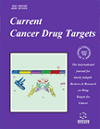
Full text loading...
Cyclin-dependent Kinase 12 (CDK12) is a Cyclin-dependent Kinase (CDK) that plays a crucial role in various biological processes, including transcription, translation, mRNA splicing, cell cycle regulation, and DNA damage repair. Dysregulation of CDK12 has been implicated in tumorigenesis, and genetic alterations affecting CDK12 have been identified in multiple cancer types, including breast cancer, ovarian cancer, gastric cancer, and prostate cancer. Numerous studies have demonstrated that suppression of CDK12 expression effectively inhibits tumor growth and proliferation, underscoring its significance as a cancer biomarker and a potential therapeutic target in cancer treatment. A thorough comprehension of CDK12 is expected to significantly enhance the advancement of novel approaches for the treatment and prevention of cancer. In recent times, endeavors have been undertaken to formulate targeted inhibitors for CDK12, such as PROTAC and molecular gel degraders. Concurrently, investigations have been conducted on the combined utilization of CDK12 small molecule inhibitors and immunotherapy as a potential strategy. This paper examines the diverse functions of CDK12 in the modulation of gene expression and its implications in human tumors. Specifically, it explores the recently uncovered roles of CDK12 kinases in various cellular processes, emphasizing the potential of CDK12 as a viable therapeutic target for the management of human tumors. Furthermore, this review provides an up-to-date account of the advancements made in utilizing CDK12 in tumor therapy.

Article metrics loading...

Full text loading...
References


Data & Media loading...

